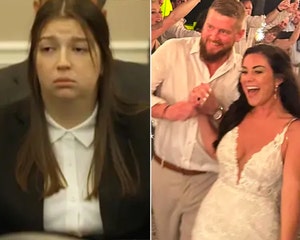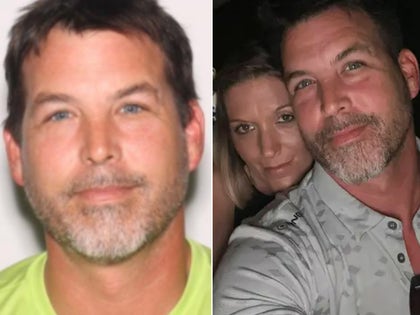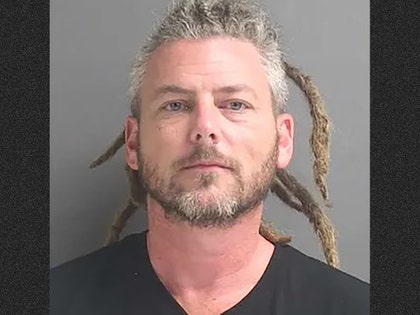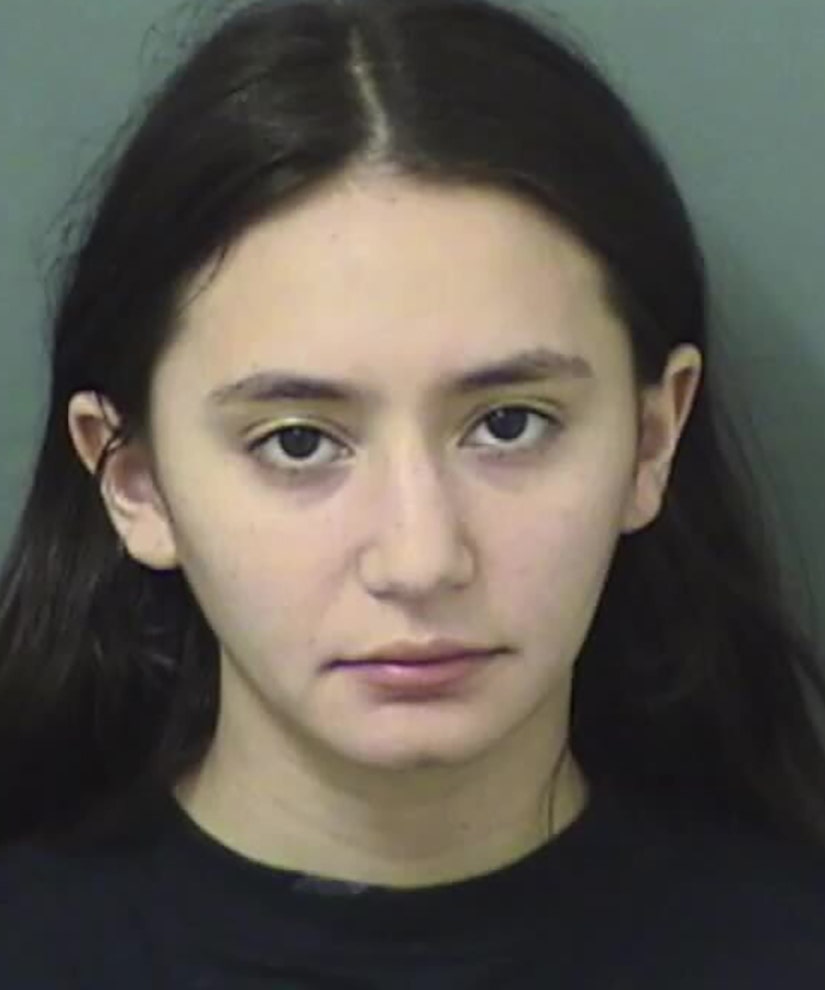 GoFundMe / Charleston County Detention Center
GoFundMe / Charleston County Detention Center
Attorneys for Jamie Lee Komoroski, who pleaded guilty to reckless homicide and other DUI-related charges in the fatal crash, says her sentence is "unwarranted and grossly disproportionate," blaming media coverage in part for the decision.
A woman who pleaded guilty to a drunk driving accident that took the life of a newlywed bride in South Carolina may have taken responsibility for her actions, but she's not at all happy with the 25-year prison sentence she was slapped with after pleading guilty.
Jamie Lee Komoroski, 26, was sentenced on December 2 to 25 years behind bars in the April 2023 accident that saw Komoroski, traveling 65 mph in a 25-mph zone, slam into a golf cart carrying the newlywed couple, Samantha Miller and Aric Hutcherson, from their Folly Beach wedding reception.
 WCSC-TV/GoFundMe
WCSC-TV/GoFundMe
Slain Bride's Loved Ones Lash Out at Drunk Driver In Court After Wedding Night Death
View StoryAlso in the golf cart were the groom's brother-in-law and a nephew. All three men survived the crash with serious injuries. Miller, still in her wedding dress, died instantly.
Three days after her sentencing on two counts of felony DUI resulting in great bodily injury and one count each of felony DUI resulting in death and reckless homicide resulting in death, attorneys for Komoroski filed a petition to Ninth Judicial Circuit Judge Deadra L. Jefferson asking her to reconsider her sentence.
After pleading guilty, Komoroski was sentenced to 25 years for the DUI resulting in death, 15 for each DUI resulting in injury, and 10 for reckhless homicide -- with sentences to run concurrently.
 Instagram
Instagram
BoxLunch Speaks Out After Disney Influencer Dominique Brown Died at Its Event
View StoryRequesting Reduced Sentence
In this latest court filing, Komoroski's attorneys are calling this sentence "unwarranted and grossly disproportionate," according to Law & Crime. The documents state that similar cases in "neighboring jurisdictions" carried sentences ranging from nine to 18 years, with some cases in that same county seeing sentences as long as six years imprisonment.
The attorneys acknowledged that there have been 25-year sentences, but those only on paper, with defendants ultimately serving anywhere between three and 18 years.
As noted by Komoroski's attorneys, these are "the most severe penalty permitted by state law" for each count. They also noted that in none of the neighboring states of Alabama, Florida, Georgia, Kentucky, Maryland, North Carolina, Texas, Virginia, or West Virgina does a drunk driving incident leading to death result in a sentence greater than 20 years.
 WLUK/Green Lake County Jail
WLUK/Green Lake County Jail
Kayaker Who Faked Death Details Escape Plan, Efforts to Stay Hidden & His Big Mistake
View StoryOn the scene after the fatal accident, Komoroski allegedly refused a field sobriety test, insisting she'd only had one beer and a drink of tequila an hour before, despite officers reporting she strongly smelled of alcohol.
She reportedly told a witness on the scene she "did nothing wrong." Her blood-alcohol content when it was tested, after police obtained a warrant to draw blood, was still more than three times the legal limit at that point.
Ultimately, though, Komoroski did plead guilty in court.
"This is the worst decision I have ever made in my life, and it has affected the lives of so many. I will use the time to better myself," she told the courtroom and Miller's loved ones after admitting that she was a recovering alcoholic ahead of her sentencing.
"I take full responsibility for the tragic outcome that my decisions have made. I will carry this guilt with me for the rest of my life."
 KLAS
KLAS
Bodycam Footage Shows Father's Murder Confession of Wife & Stepson in Front of 5-Year-Old Son
View StoryConsidering Mitigating Circumstances
In their motion, attorneys for Komoroski allege that the judge did not consider mitigating factors when determining the defendant's sentence, per Law & Crime:
- Lack of any criminal history or any history of violence
- Unprotected pleas of guilty to spare the victim-family members from the difficulty of trial and save the State time and resources
- Absence of intent to cause death
- known struggles with alcohol abuse, and remedial steps taken to address her addiction
- genuine expressions of remorse and regret for her actions
- History, character and rehabilitative potential
- No prior history of DUI or DUI-related offenses
- Complete and unequivocal acceptance of responsibility for her actions
"The Court is required to equally consider both aggravating and mitigating factors and, as evidenced by the maximum sentence issued against Ms. Komoroski on each count to which she pleaded, such balancing did not occur," states the new filing.
The defense argued that pleading guilty and saving State resources and time has always led to some kind of sentence credit in similar cases prior to Komoroski's, suggesting that the greater media coverage seen in her case may have been a factor in this sentence.
"These other cases likely did not garner the same degree of media attention; however, the significant media interest cannot serve as an aggravating factor justifying a longer sentence," Komoroski's attorneys argued in their filing.
 Facebook/CourtTV
Facebook/CourtTV




















